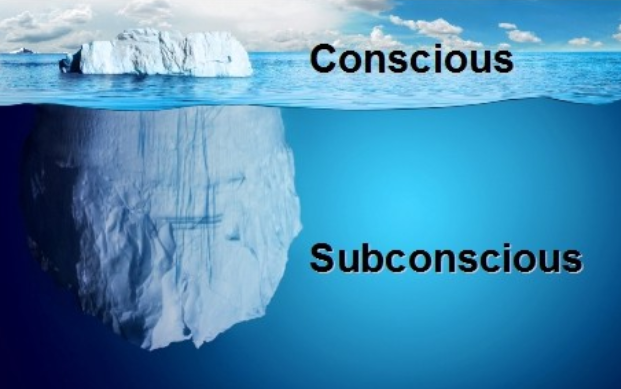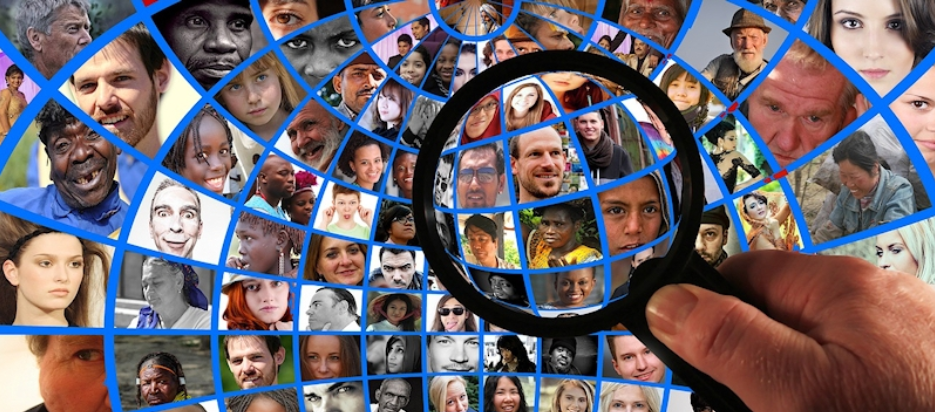
Our conscious part interacts with our environment/reality. I like to see it as an actor (consciousness) who performs a scene of a play (world image) accordingly to a script made by the director (subconsciousness). The actor performs on stage (reality) and the director watches the performance, especially the reaction of the public (reality). Both are looking at reality but from a different point of view. The actor experiences feelings and emotions during the performance. The director registers but does not really feel these emotions, it just observes. The director remembers and uses the feedback to adjust the script in such a way that (in the short and long term) the safety and well-being of the actor are improved. Of course, the actor has some influence but has to convince the director before the script is changed.
All incoming information (senses) is processed by our subconsciousness. Most of the time without our direct knowledge. It stores all the information, (every little detail) in its memory using a holographic technique (see Holographic memory). Throughout the years it develops a world image that complies with our safety, needs, and wishes. Based on this world image, it decides whether or not the present event/information is important enough to pass on to our consciousness. Now that we became aware of it, we have to act upon it. However, this action (script) is also 80 percent predefined by our subconsciousness (director).
So our subconsciousness will reduce the perhaps 100 options to maybe 10, based on previous choices, feelings, environment, social acceptance, etc… These 10 are presented to our consciousness so we can make the final selection. This works really well; our subconsciousness processes information 200.000 times faster than our consciousness, so we can focus on what really matters. It works a lot like the way Google uses search words, filters, and patterns, to narrow down all the information to the most relevant ones. If we had to do that ourselves, it would have taken us very much time. Time we can’t use to actually do something with the information we finally found. Our responses would be so slow we would not survive in the real world and never have made it this far.

When something happens, our brain tries to find a match in our holographic memory. However, no event is exactly the same. Therefore it will adjust little details and even fill in the blanks with imaginary information, in order to succeed. If the result is close enough to an existing event it will copy its response (script) and execute it. The events that happen most often come on top of the list. Their response will eventually become autonomous, up to the point that it won’t even reach our conscious minds anymore. Take for example walking, drinking, driving a car, and playing tennis, but also fear to fly, the urge to smoke, getting nervous, etc…
When we experience strong emotions (see Feeling and emotions) that overload our consciousness, it uses up all available ‘processor’ time and starts running in circles. For example, worrying about the future because there is not enough money to pay the bills. Over and over again your consciousness goes through the same options: where do I get the money, how much time do I have left, which bill shall I pay first, etc… By doing so a lot of capacity is consumed and therefore not available to make good decisions. That’s why people who are already in a bad situation make even worse decisions. One way of dealing with this is, becoming an observer. This will disconnect you from the emotions involved; now that your mind is less occupied, it can come up with better solutions.
It’s important to know, that our subconsciousness doesn’t make any difference between a real problem and an imaginary one. If we keep convincing ourselves that we probably will lose our job, eventually our subconscious will focus on all signals that confirm this conviction. It doesn’t judge whether it’s good or bad; apparently, it’s of great interest. Unfortunately, we are more inclined to believe our negative thoughts rather than positive ones. With a negative thought, we win either way, when it comes true you can say “I told you so” and when not that we were lucky. How different is this when you have positive thoughts. Now there is something to lose when it doesn’t happen, there will be disappointment, and you have failed.
Fortunately, there is something we can do about this. You can improve self-trust or strengthen yourself in a certain belief. A good way to do that is to use the word ‘BUT’. Whenever we use the word ‘BUT’, everything that was said before, loses much of its value. What comes next is apparently more important and overrules it. For example, we are in front of a mirror and we think, “Our hair is a mess”. Now we focus on a part we are really happy about and think “BUT I have lovely eyes” or “But a great personality”. This will for sure make you feel better.